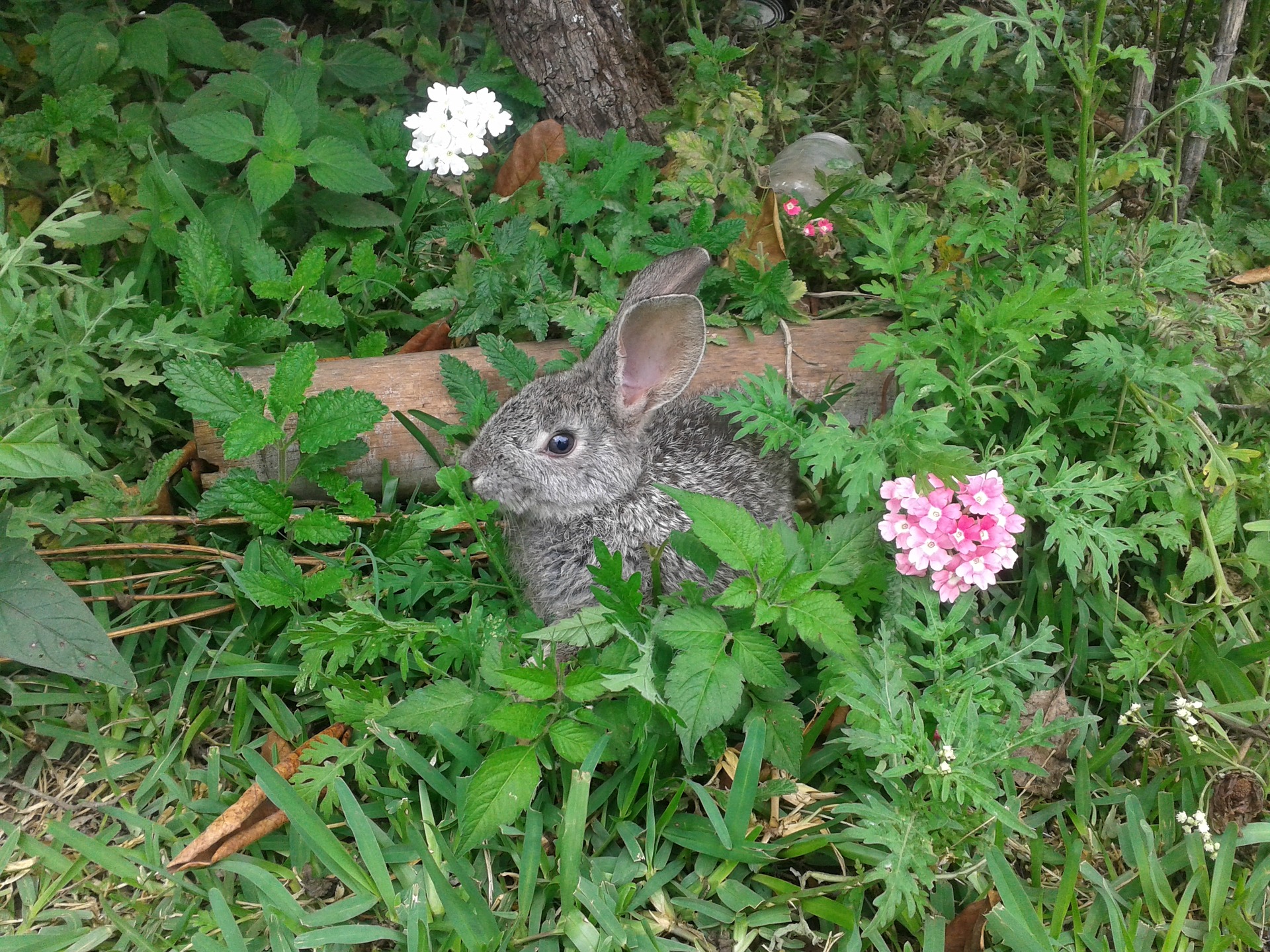Rabbit Damage in Gardens
Posted by Jennifer Smith on 12th Jul 2017
Let's be real: floppy-eared rabbits are adorable with their bushy tails and their cute twitching noses.
But when you look beyond their features, you notice that rabbits are destructive critters that cause crop damage throughout the year to both farms and gardens.
You may notice small pea-sized droppings around your plants that may indicate that a rabbit has been hopping in-and-out of your garden. You may also notice chewing marks on plants or digging holes nearby. Sounds like you have a rabbit problem.
You may notice small pea-sized droppings around your plants that may indicate that a rabbit has been hopping in-and-out of your garden. You may also notice chewing marks on plants or digging holes nearby. Sounds like you have a rabbit problem.

Although we were brought up to think that bunnies mostly eat apples, cabbage and carrots, they really enjoy green plants like lettuce. A rabbit's diet also consists of vegetables such as peas and broccoli, and will devour flowerbeds that are growing pansies, tulips and marigolds.
As a Connecticut gardener remembers, “My tulips were just poking through the snow when suddenly it looked like they’d been weed-whacked. Cut clean off! I blame the bunnies—their little paw prints were everywhere.” (The Old Farmer's Almanac)
If you want to keep rabbits away, grow rabbit-resistant plants that they can't stand eating such as onions, asparagus and tomatoes. Like deer, rabbits also dislike the taste of mint, garlic, hot pepper and basil among other herbs.
Like other rodents and small garden pests, bunnies like to chew and dig; so, it's important to keep this in-mind when it's time to protect your garden. Consider a metal rodent fence to stop rabbits and groundhogs from reaching crops. Rodent Barrier Fencing is made from a steel hex web configuration that is similar to a chicken wire - appearing virtually invisible from a distance (good news for the homeowner). It has small holes to stop smaller wild animals from getting inside the garden area (better news for the homeowner). It's best to install at least a 4' metal deer fence with rodent protection.
Installing a rodent fence is easy to do for the homeowner and are the most effective means for keeping away rabbits, groundhogs and deer.
Another idea for rabbit control is to drape netting over flowerbeds or fruit bushes. Wildlife netting is easy to use and is made from a loose polypropylene material. It will even stop birds from attaching plants. Applying rabbit repellents around the property also deters bunnies from moving in with you or chipping off pieces of Irish Spring soap.
Although we were brought up to think that bunnies mostly eat apples, cabbage and carrots, they really enjoy green plants like lettuce. A rabbit's diet also consists of vegetables such as peas and broccoli, and will devour flowerbeds that are growing pansies, tulips and marigolds.
As a Connecticut gardener remembers, “My tulips were just poking through
the snow when suddenly it looked like they’d been weed-whacked. Cut
clean off! I blame the bunnies—their little paw prints were everywhere.” (The Old Farmer's Almanac)
Similar to deer and other wildlife, cotton-tail bunnies don't like to leave their homes once established; so, be sure to use all rabbit management techniques and small animal fencing to keep out rabbits.
